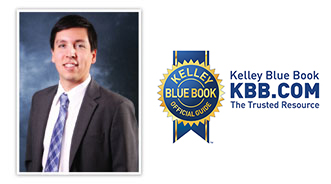UPDATED: KBB Pinpoints Impact to Used Values from Chrysler Recall

By subscribing, you agree to receive communications from Auto Remarketing and our partners in accordance with our Privacy Policy. We may share your information with select partners and sponsors who may contact you about their products and services. You may unsubscribe at any time.
CARY, N.C. –
Consumers won’t be the only ones helped by Chrysler’s announcement Tuesday that it will recall certain Jeep models after coming to terms with National Highway Traffic Safety Administration.
According to Kelley Blue Book senior analyst Alec Gutierrez, the automaker was likely spared declines in the used values of these vehicles as well as sales damage.
“There was risk of the values of these vehicles declining, but with the voluntary recall by Chrysler, that is no longer there,” Gutierrez said.
“This outcome will not only help consumers, but also Chrysler, as there was also danger that sales could decline if they had refused the recall,” he continued. “Consumers have been forgiving when manufacturers have chosen to comply with NHTSA requests in recent years and now that Chrysler has softened their stance, they should escape any negative impact to their brand.”
To recap, Chrysler announced Tuesday that it and NHTSA “resolved their differences” on a recall request from NHTSA involving 1993–2004 Jeep Grand Cherokees and 2002–2007 Jeep Liberty vehicles, and later in the day, said it would be recalling 1.56 million of these units and performing a “customer satisfaction action” on the remainder of the vehicles.
(As detailed here, NHTSA had asked Chrysler to recall 2.7 million of these vehicles).
Subscribe to Auto Remarketing to stay informed and stay ahead.
By subscribing, you agree to receive communications from Auto Remarketing and our partners in accordance with our Privacy Policy. We may share your information with select partners and sponsors who may contact you about their products and services. You may unsubscribe at any time.
“Chrysler Group's analysis of the data confirms that these vehicles are not defective and are among the safest in the peer group,” the automaker said in its initial statement.
“Nonetheless, Chrysler Group recognizes that this matter has raised concerns for its customers and wants to take further steps, in coordination with NHTSA, to provide additional measures to supplement the safety of its vehicles,” it added.
“Chrysler Group regards safety as a paramount concern and does not compromise on the safety of our customers and their families.”
NHTSA also released a statement on the matter Tuesday, which read: “The National Highway Traffic Safety Administration’s top priority is safety, including the recall of vehicles when supported by our data. As such, we are pleased that Chrysler has agreed to take action to protect its customers and the driving public.
“Consumers impacted by the safety recall and customer satisfaction campaign should have their vehicles serviced promptly once they receive notification from Chrysler,” NHTSA continued. “In the meantime, we will continue our investigation into this issue, pending the agency’s review of the documents provided by Chrysler in its recall action.”
Later on Tuesday, Chrysler issued another statement clarifying the numbers of vehicles involved.
The automaker is recalling 1.56 million Jeep models, which includes the 1993-1998 Grand Cherokees and 2002-2007 Liberty models in the aforementioned group. It is conducting the action “for supplemental improvement in low-speed crashes.”
It plans on inspecting all of these 1.56 million Jeeps.
“If a vehicle doesn’t have a trailer-hitch assembly, Chrysler Group dealers will install a new trailer-hitch assembly to better manage crash forces in low-speed impacts,” the automaker said in its second statement.
“Aftermarket trailer hitches will be inspected, and if the hitch is determined to be inadequate or if it has sharp edges, it will be replaced with a new trailer-hitch assembly. While vehicles with factory-installed and Mopar trailer-hitch assemblies will be inspected, it is likely that those vehicles will require no further action.”
As for the 1999-2004 Grand Cherokees, the plan is for a “customer satisfaction action,” as detailed below.
“Chrysler will conduct a customer satisfaction action for the 1999-2004 Jeep Grand Cherokee to inspect aftermarket trailer hitches for any sharp edges and, if necessary, replace with a new trailer-hitch assembly. Owners of 1999-2004 Jeep Grand Cherokees do not need to bring in their vehicles for inspection if it doesn’t have a trailer hitch, or if it has a factory-installed or Mopar trailer hitch,” officials said.
More from Industry
Amid other reaction from auto analysts to Tuesday’s news, it was suggested the recall highlights the automaker’s commitment to safety and could earn the company some points among consumers.
“Though the Chrysler data points to no flaws in their vehicles, the voluntary recall shows how important they want the drivers in their vehicles to feel — safe,” said Jared Rowe, president of KBB. “Chrysler has been gradually improving market share since 2009 because of the improvements they have made to their product lineup and their stance could only help to improve their brand image and sales.”
KBB executive editor and analyst Jack Nerad noted: “Chrysler‘s stance in resolving the issue with NHTSA shows the company takes safety and its customers seriously. The voluntary recall campaign will help to alleviate any fears from drivers of these vehicles.”
Meanwhile, Edmunds.com senior analyst Michelle Krebs said: “We haven't seen all of the details of the voluntary recall so we don't know what precisely Chrysler and NHTSA have agreed to. But Chrysler obviously calculated the risks and benefits and concluded that the cost to repair these vehicles isn't as expensive as the potential long-term damage that could come from bad PR.
“This was probably the right decision by Chrysler. Last year there were 659 recalls issued by NHTSA, and none of them appear to have had a lasting negative impact on any brand,” she continued. “Once the smoke settles, I expect that this will be just a minor blip in Jeep's history.”
Continue the conversation with Auto Remarketing on both LinkedIn and Twitter.


